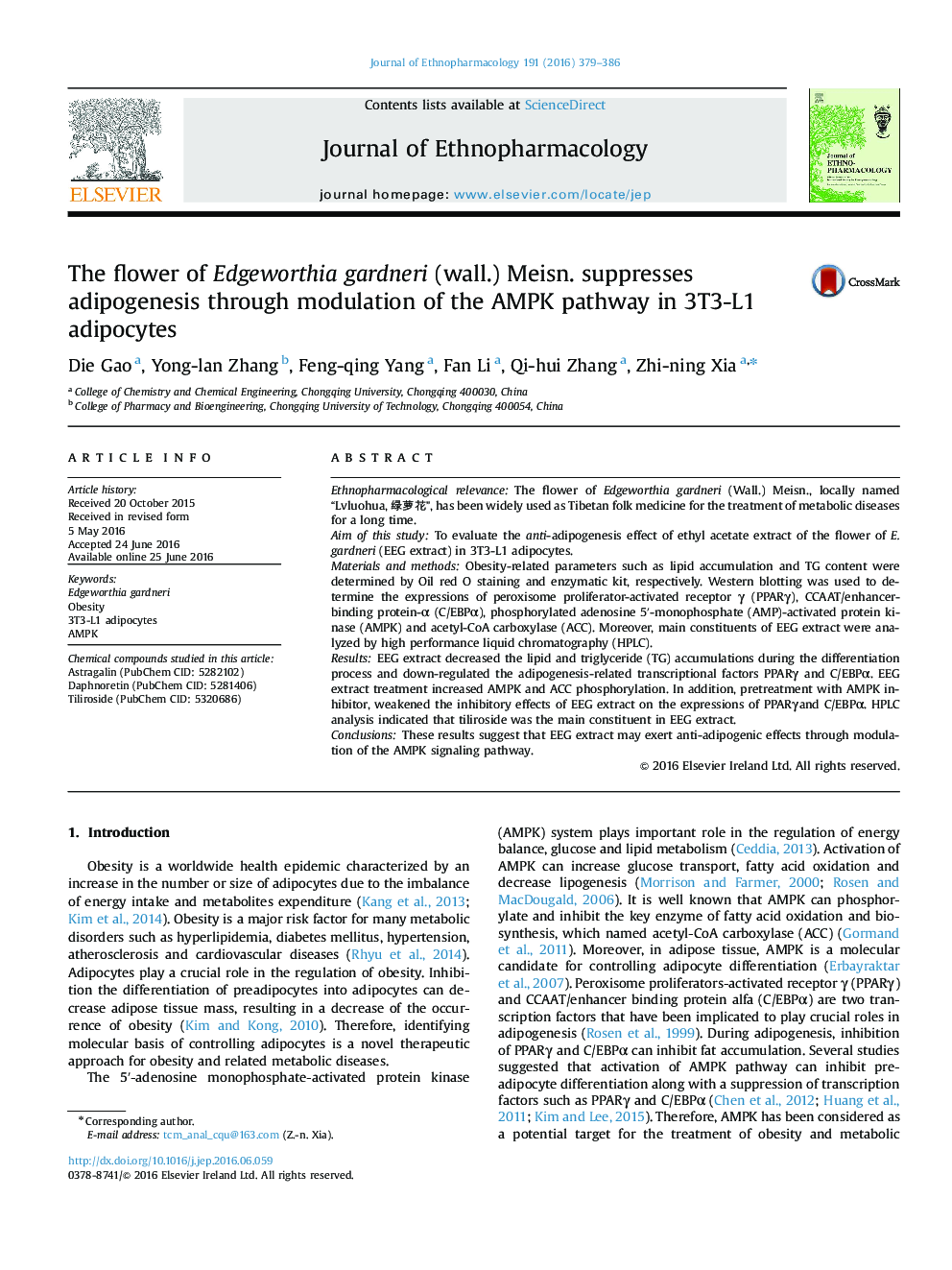| Article ID | Journal | Published Year | Pages | File Type |
|---|---|---|---|---|
| 2544600 | Journal of Ethnopharmacology | 2016 | 8 Pages |
Ethnopharmacological relevanceThe flower of Edgeworthia gardneri (Wall.) Meisn., locally named “Lvluohua, 绿萝花”, has been widely used as Tibetan folk medicine for the treatment of metabolic diseases for a long time.Aim of this studyTo evaluate the anti-adipogenesis effect of ethyl acetate extract of the flower of E. gardneri (EEG extract) in 3T3-L1 adipocytes.Materials and methodsObesity-related parameters such as lipid accumulation and TG content were determined by Oil red O staining and enzymatic kit, respectively. Western blotting was used to determine the expressions of peroxisome proliferator-activated receptor γ (PPARγ), CCAAT/enhancer-binding protein-α (C/EBPα), phosphorylated adenosine 5′-monophosphate (AMP)-activated protein kinase (AMPK) and acetyl-CoA carboxylase (ACC). Moreover, main constituents of EEG extract were analyzed by high performance liquid chromatography (HPLC).ResultsEEG extract decreased the lipid and triglyceride (TG) accumulations during the differentiation process and down-regulated the adipogenesis-related transcriptional factors PPARγ and C/EBPα. EEG extract treatment increased AMPK and ACC phosphorylation. In addition, pretreatment with AMPK inhibitor, weakened the inhibitory effects of EEG extract on the expressions of PPARγand C/EBPα. HPLC analysis indicated that tiliroside was the main constituent in EEG extract.ConclusionsThese results suggest that EEG extract may exert anti-adipogenic effects through modulation of the AMPK signaling pathway.
Graphical abstractFigure optionsDownload full-size imageDownload high-quality image (179 K)Download as PowerPoint slide
